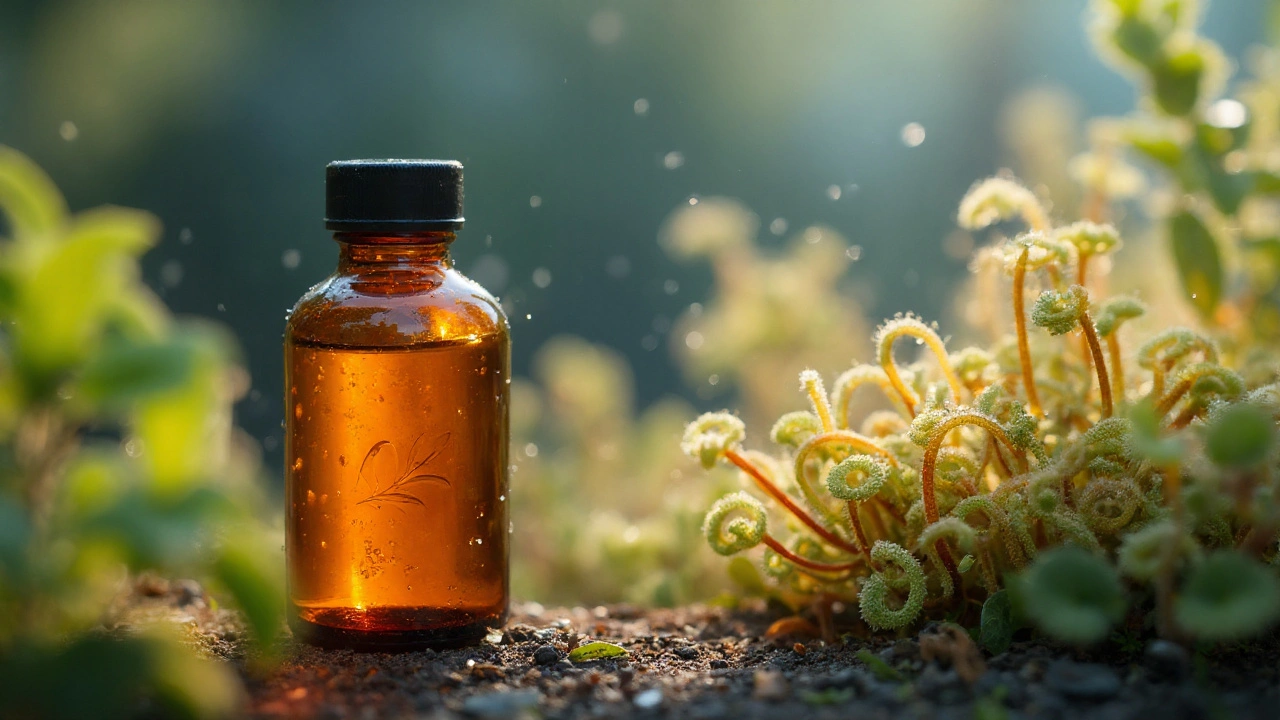Sundew Supplement – What It Is and How It Can Help You
If you’ve heard about Sundew as a plant and wonder why it shows up in supplement aisles, you’re not alone. Sundew (Drosera) is a tiny carnivorous plant that’s been used in folk medicine for centuries. Modern makers turn its leaves into powders, capsules, or teas, promising everything from better respiratory health to calm nerves.
People start looking at Sundew because it contains flavonoids and a compound called naphthoquinone. Those ingredients are believed to have anti‑inflammatory and antioxidant effects. In simple terms, that means the plant might help reduce swelling and protect cells from damage. Some users also say it eases coughs and soothes irritated throats, which lines up with its traditional use for lung issues.
What Is Sundew and Why People Use It
The plant grows in boggy areas and catches insects on sticky hairs. When you extract the juices, you get a mixture that’s mildly bitter but packed with the active chemicals mentioned above. Natural‑health fans often choose Sundew for three main reasons:
- Respiratory support: A handful of anecdotal reports claim less coughing and easier breathing during cold season.
- Calming effect: Some users feel a gentle relaxation after taking a low dose, making it a possible alternative to stronger sedatives.
- Antioxidant boost: The flavonoids may help fight oxidative stress, which is linked to aging and chronic disease.
Keep in mind that scientific research on Sundew is still limited. Most evidence comes from small studies or traditional use. That doesn’t mean it’s useless, just that you should treat it as a complementary aid, not a cure‑all.
How to Choose a Safe Sundew Supplement
Shopping for any herb can be tricky, especially when the market is flooded with cheap, low‑quality products. Here’s a quick checklist to make sure you get a reliable Sundew supplement:
- Check the source: Look for brands that state the plant is wild‑harvested or grown in controlled farms. Wild harvesting without regulation can lead to contamination.
- Read the label: A good product lists the exact amount of dried leaf material per serving. Avoid “proprietary blend” claims that hide the dosage.
- Third‑party testing: Reputable companies will provide a certificate of analysis (COA) from an independent lab. That proves the product is free of heavy metals and pesticides.
- Watch for additives: Some capsules contain fillers or artificial colors. If you’re sensitive, stick to pure powder or capsules with minimal extras.
- Start low: Begin with the smallest suggested dose and see how you feel. Most people start with 200‑400 mg of dried leaf extract once or twice a day.
If you’re pregnant, nursing, or on medication, have a quick chat with your doctor before adding Sundew to your routine. The plant can interact with blood‑thinners and some antidepressants, so it’s better to be safe.
Another practical tip: store the supplement in a cool, dry place. Moisture can degrade the active compounds, making the product less effective over time.
In short, Sundew supplement offers a natural option for people looking to support their lungs, calm nerves, or add antioxidants. Choose a well‑tested product, respect the recommended dose, and keep an eye on any side effects. With those basics covered, you can decide if Sundew fits into your health plan without any hassle.




